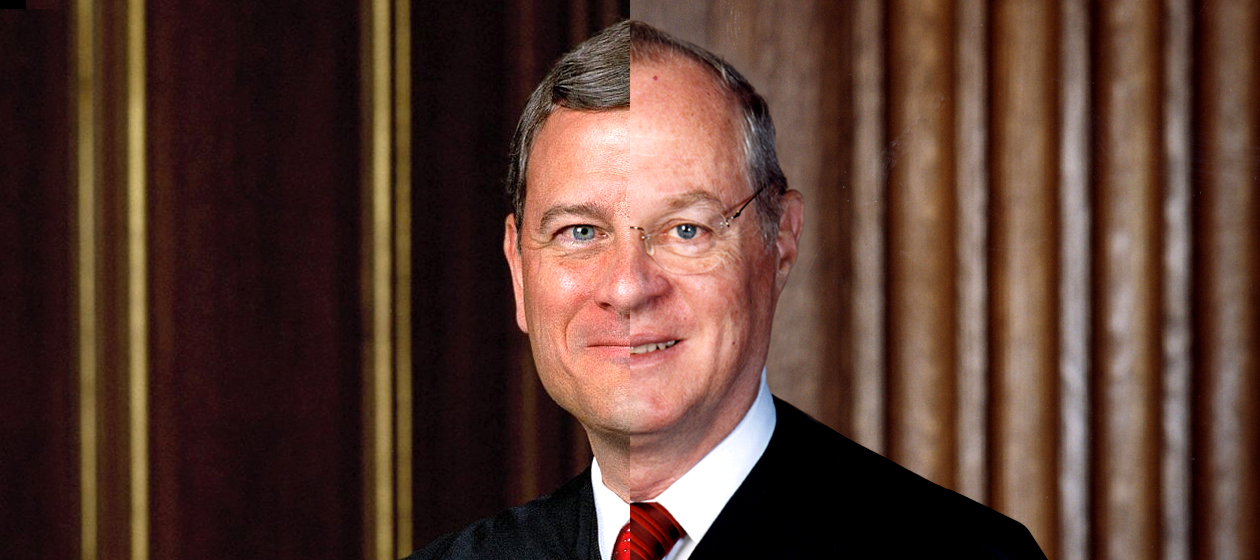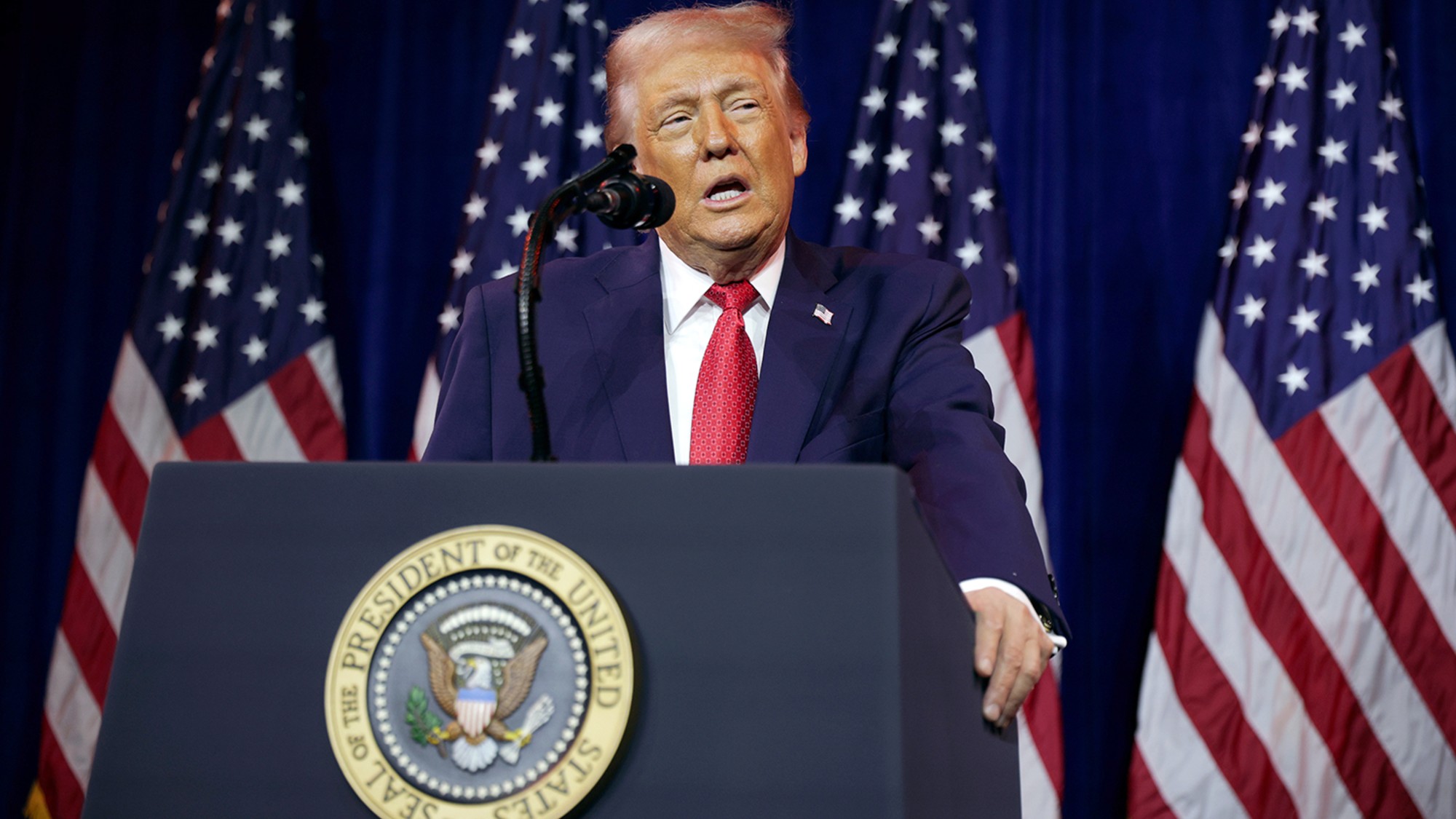Is John Roberts the next Anthony Kennedy?
Who will be the Supreme Court's new swing vote?


There's a game the most cynical social conservatives suspect Republicans play: Keep the Supreme Court within one vote of overturning Roe v. Wade but never truly put the landmark abortion decision at risk. That way, come election time, Republicans can whip up enthusiasm among anti-abortion voters without ever losing the issue as a motivating factor or facing the political consequences of being able to more meaningfully regulate the procedure.
Such thinking returns with the upcoming retirement of Justice Anthony Kennedy, announced this week. With Kennedy gone, President Trump has an opportunity to replace the Supreme Court's swing vote with a reliable conservative, perhaps even imperiling Roe. But even if Trump chooses such a conservative and gets his nominee through a closely divided Senate, that nominee could surprise everyone with the occasional liberal lean. All eyes would then shift to Chief Justice John Roberts, the jurist most likely to take over Kennedy's role as "the decider" on the court.
In 1992, when conservatives last hoped they had an anti-Roe majority on the nation's highest court after nearly 12 years under Republican presidents, they discovered they were not one but two votes short. Two of Ronald Reagan's three appointees to the Supreme Court joined half of George H.W. Bush's appointees in voting to uphold Roe. Only three justices voted to reverse it, one of them being Byron White, a Democratic nominee. Kennedy, currently the last Reagan appointee on the court, wrote the majority opinion affirming "the right to define one's own concept of existence, of meaning, of the universe, and of the mystery of human life" — and legal abortion.
The Week
Escape your echo chamber. Get the facts behind the news, plus analysis from multiple perspectives.

Sign up for The Week's Free Newsletters
From our morning news briefing to a weekly Good News Newsletter, get the best of The Week delivered directly to your inbox.
From our morning news briefing to a weekly Good News Newsletter, get the best of The Week delivered directly to your inbox.
Roberts is more conservative than Kennedy. Kennedy was more conservative than John Paul Stevens or David Souter, among other Republican appointees who frustrated the right. But Roberts is an institutionalist who has let down conservatives before.
Nearly 20 years after Republican appointees rescued Roe, the Supreme Court seemed similarly poised to strike down the Affordable Care Act in 2015. The votes on paper seemed to be there. Then, without warning, Roberts rode to ObamaCare's rescue, joining the liberal bloc with a majority opinion that, among other things, justified the mandate as a tax. Many court watchers thought the conservatives' dissent read strangely like it was supposed to be the majority opinion.
Perhaps it was. "I am told by two sources with specific knowledge of the court's deliberations that Roberts initially sided with the conservatives in this case and was prepared to strike down ... the individual mandate," said CBS News' Jan Crawford on Face the Nation at the time. "But Roberts, I'm told by my sources, changed his views, deciding to instead join with the liberals. There was a one-month campaign to bring Roberts back into the conservative fold, led, ironically, by Anthony Kennedy."
Subsequent reports suggested that Roberts was worried that by taking a side in the partisan conflict over ObamaCare, he would hurt the court's legitimacy — a legitimacy that should only come from faithful application of the Constitution. He received fulsome praise in quarters where he was frequently denigrated. Legal commentator Jeffrey Toobin, who castigated Roberts on Citizens United v. FEC, called the chief justice's ObamaCare vote a "singular act of courage." Howard Kurtz, writing in The Daily Beast, credited him with "ris[ing] above partisanship."
A free daily email with the biggest news stories of the day – and the best features from TheWeek.com
Would Roberts really cast the deciding vote to undo Roe if he would not do so on the individual mandate?
This is the subject of some debate within conservative circles. Roberts has never voted to strike down abortion restrictions, and there is considerable evidence he has misgivings about both Roe and abortion. But nobody can know for sure.
Roberts could succeed Kennedy as the court's swing vote even in cases that don't involve abortion. There were a lot of conservative-friendly 5-4 rulings out this week with Kennedy in the majority. In terms of judicial philosophy, Roberts now looks like the most likely decision-maker on whether the conservative bloc prevails.
Conservatives could take comfort in the fact that from Sandra Day O'Connor to Kennedy to Roberts, the court's swing vote keeps moving further to the right. Certainly, that is keeping liberals up at night. But given recent history, conservatives can also be forgiven for wondering whether Kennedy's retirement could actually be a prelude to some future disappointment.
W. James Antle III is the politics editor of the Washington Examiner, the former editor of The American Conservative, and author of Devouring Freedom: Can Big Government Ever Be Stopped?.
-
 Scoundrels, spies and squires in January TV
Scoundrels, spies and squires in January TVthe week recommends This month’s new releases include ‘The Pitt,’ ‘Industry,’ ‘Ponies’ and ‘A Knight of the Seven Kingdoms’
-
 Venezuela: The ‘Donroe doctrine’ takes shape
Venezuela: The ‘Donroe doctrine’ takes shapeFeature President Trump wants to impose “American dominance”
-
 Giving up the booze
Giving up the boozeFeature Sobriety is not good for the alcohol industry.
-
 The billionaires’ wealth tax: a catastrophe for California?
The billionaires’ wealth tax: a catastrophe for California?Talking Point Peter Thiel and Larry Page preparing to change state residency
-
 Bari Weiss’ ‘60 Minutes’ scandal is about more than one report
Bari Weiss’ ‘60 Minutes’ scandal is about more than one reportIN THE SPOTLIGHT By blocking an approved segment on a controversial prison holding US deportees in El Salvador, the editor-in-chief of CBS News has become the main story
-
 Has Zohran Mamdani shown the Democrats how to win again?
Has Zohran Mamdani shown the Democrats how to win again?Today’s Big Question New York City mayoral election touted as victory for left-wing populists but moderate centrist wins elsewhere present more complex path for Democratic Party
-
 Millions turn out for anti-Trump ‘No Kings’ rallies
Millions turn out for anti-Trump ‘No Kings’ ralliesSpeed Read An estimated 7 million people participated, 2 million more than at the first ‘No Kings’ protest in June
-
 Ghislaine Maxwell: angling for a Trump pardon
Ghislaine Maxwell: angling for a Trump pardonTalking Point Convicted sex trafficker's testimony could shed new light on president's links to Jeffrey Epstein
-
 The last words and final moments of 40 presidents
The last words and final moments of 40 presidentsThe Explainer Some are eloquent quotes worthy of the holders of the highest office in the nation, and others... aren't
-
 The JFK files: the truth at last?
The JFK files: the truth at last?In The Spotlight More than 64,000 previously classified documents relating the 1963 assassination of John F. Kennedy have been released by the Trump administration
-
 'Seriously, not literally': how should the world take Donald Trump?
'Seriously, not literally': how should the world take Donald Trump?Today's big question White House rhetoric and reality look likely to become increasingly blurred
